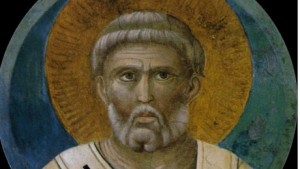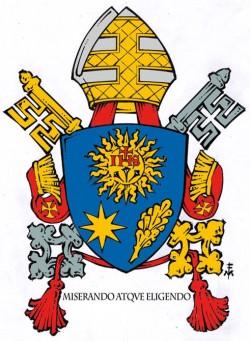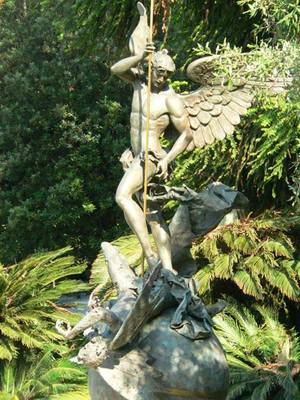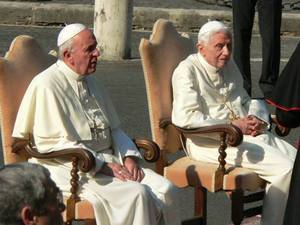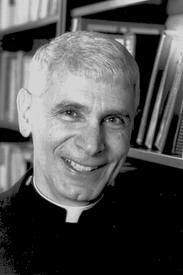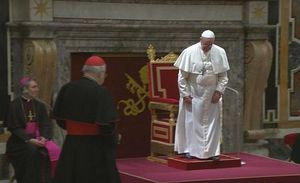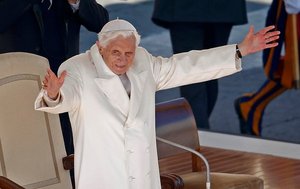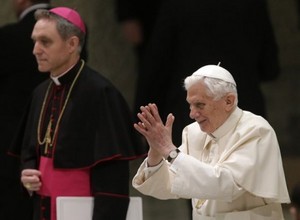The Year of Faith closes with the Pope embracing the relics, the bones, of the Apostles who answer their human need, who broke opened their hearts to see the face of God. Peter and Paul shared in the One they loved with the world, and they presented the world with gift of salvation with whom they desired to share an incomparable journey, a destiny, as Christians, desire to share in. Francis closes a year in which we all lived with intensity of living the faith, meeting the Lord and journeying to a new knowledge and new vigor in the promise of the Hundredfold. The following is the homily delivered today in Rome where he speaks about the essentials of the faith: baptism, the Encounter and centrality of the Christ in our life and the desire for heaven.
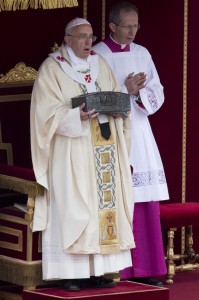 Today’s solemnity of Our Lord Jesus Christ, King of the Universe, the crowning of the liturgical year, also marks the conclusion of the Year of Faith opened by Pope Benedict XVI, to whom our thoughts now turn with affection and gratitude. By this providential initiative, he gave us an opportunity to rediscover the beauty of the journey of faith begun on the day of our Baptism, which made us children of God and brothers and sisters in the Church. A journey which has as its ultimate end our full encounter with God, and throughout which the Holy Spirit purifies us, lifts us up and sanctifies us, so that we may enter into the happiness for which our hearts long.
Today’s solemnity of Our Lord Jesus Christ, King of the Universe, the crowning of the liturgical year, also marks the conclusion of the Year of Faith opened by Pope Benedict XVI, to whom our thoughts now turn with affection and gratitude. By this providential initiative, he gave us an opportunity to rediscover the beauty of the journey of faith begun on the day of our Baptism, which made us children of God and brothers and sisters in the Church. A journey which has as its ultimate end our full encounter with God, and throughout which the Holy Spirit purifies us, lifts us up and sanctifies us, so that we may enter into the happiness for which our hearts long.
I offer a cordial greeting to the Patriarchs and Major Archbishops of the Eastern Catholic Churches present. The exchange of peace which I will share with them is above all a sign of the appreciation of the Bishop of Rome for these communities which have confessed the name of Christ with exemplary faithfulness, often at a high price.
With this gesture, through them, I would like to reach all those Christians living in the Holy Land, in Syria and in the entire East, and obtain for them the gift of peace and concord.
The Scripture readings proclaimed to us have as their common theme the centrality of Christ. Christ as the centre of creation, the centre of his people and the centre of history.
1. The apostle Paul, in the second reading, taken from the letter to the Colossians, offers us a profound vision of the centrality of Jesus. He presents Christ to us as the first-born of all creation: in him, through him and for him all things were created. He is the centre of all things, he is the beginning. God has given him the fullness, the totality, so that in him all things might be reconciled (cf. Col 1:12-20).
This image enables to see that Jesus is the centre of creation; and so the attitude demanded of us as true believers is that of recognizing and accepting in our lives the centrality of Jesus Christ, in our thoughts, in our words and in our works. When this centre is lost, when it is replaced by something else, only harm can result for everything around us and for ourselves.
2. Besides being the centre of creation, Christ is the centre of the people of God. We see this in the first reading which describes the time when the tribes of Israel came to look for David and anointed him king of Israel before the Lord (cf. 2 Sam 5:1-3). In searching for an ideal king, the people were seeking God himself: a God who would be close to them, who would accompany them on their journey, who would be a brother to them.
Christ, the descendant of King David, is the “brother” around whom God’s people come together. It is he who cares for his people, for all of us, even at the price of his life. In him we are all one; united with him, we share a single journey, a single destiny.
3. Finally, Christ is the centre of the history of the human race and of every man and woman. To him we can bring the joys and the hopes, the sorrows and troubles which are part of our lives. When Jesus is the centre, light shines even amid the darkest times of our lives; he gives us hope, as he does to the good thief in today’s Gospel.
While all the others treat Jesus with disdain – “If you are the Christ, the Messiah King, save yourself by coming down from the cross!” – the thief who went astray in his life but now repents, clinging to the crucified Jesus, begs him: “Remember me, when you come into your kingdom” (Lk 23:42). And Jesus promises him: “Today you will be with me in paradise” (v. 43). Jesus speaks only a word of forgiveness, not of condemnation; whenever anyone finds the courage to ask for this forgiveness, the Lord does not let such a petition go unheard.
Jesus’ promise to the good thief gives us great hope: it tells us that God’s grace is always greater than the prayer which sought it. The Lord always grants more than what he has been asked: you ask him to remember you, and he brings you into his Kingdom!
Let us ask the Lord to remember us, in the certainty that by his mercy we will be able to share his glory in paradise. Amen!
